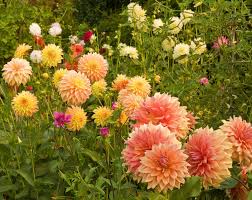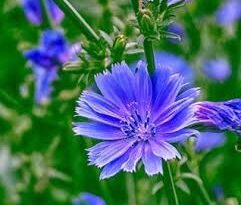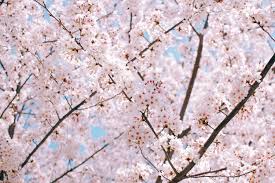Delilah Flowers (Delilah Pseudanthus): Complete Growing and Care Guide
The Delilah flower, scientifically known as Delilah pseudanthus, is a mesmerizing botanical wonder that graces the natural landscapes with its enchanting presence. This extraordinary flower is celebrated for its captivating beauty, delicate petals, and rich symbolism, making it a cherished addition to gardens, floral arrangements, and heartfelt gestures of love and appreciation.
With its botanical name derived from the Greek word “delos,” meaning “visible” or “conspicuous,” the Delilah flower lives up to its name by effortlessly capturing the attention of all who encounter its alluring blooms. This radiant flower belongs to the family of pseudanthus, characterized by its intricate floral structure and vibrant colors.
The Delilah flower showcases an array of magnificent varieties, each possessing its own unique characteristics. From the elegant Delilah Primrose, with its soft yellow petals resembling rays of sunshine, to the regal Delilah Ruby, boasting deep crimson hues reminiscent of passionate love, this floral species offers a diverse palette that caters to every aesthetic preference.
Beyond its undeniable aesthetic appeal, the Delilah flower carries deep symbolism that adds to its allure. This enchanting bloom is often associated with themes of devotion, beauty, and femininity. It is frequently used to convey messages of affection, making it a popular choice for expressing love, admiration, and gratitude towards loved ones. Its graceful presence in bouquets, floral arrangements, and wedding decorations is a testament to its timeless charm and emotional significance.
Cultivating the Delilah flower requires a careful balance of nurturing and patience. This resilient plant thrives in well-drained soil and requires ample sunlight to flourish. Gardeners and enthusiasts take pleasure in tending to its needs, ensuring it receives the optimal conditions for growth and development. With proper care, the Delilah flower rewards its cultivators with an awe-inspiring display of radiant blooms that serve as a testament to the beauty and resilience of nature.
In addition to its ornamental value, the Delilah flower has also been recognized for its medicinal properties. Historically, it has been used in traditional herbal remedies to alleviate ailments such as inflammation, skin irritations, and respiratory issues. While modern medicine has evolved, the cultural significance and therapeutic potential of the Delilah flower continue to be appreciated by those seeking natural remedies and alternative therapies.
The Delilah flower has long captured the imagination of poets, artists, and admirers alike, inspiring creations that seek to encapsulate its inherent beauty. Its delicate petals, ranging from soft pastels to vibrant hues, have been immortalized in paintings, photographs, and works of literature, serving as a muse for countless artistic expressions throughout history.
Whether adorning a garden, gracing a wedding ceremony, or brightening up a space with its vibrant presence, the Delilah flower remains an emblem of grace, elegance, and emotional resonance. Its botanical name, Delilah pseudanthus, reflects its ability to captivate and evoke a sense of wonder in all who encounter its blossoms. As nature’s gift to us, the Delilah flower continues to enchant and inspire, reminding us of the remarkable beauty that can be found in the world around us.
Read Also: Causes of Diseases in Farm Animals and How to Prevent Disease OutBreak
History and Signing of Delilah Flower

The history and significance of the Delilah flower are deeply rooted in cultural traditions, symbolism, and human emotions. Throughout the ages, this captivating blossom has held a special place in various societies, serving as a symbol of love, beauty, and devotion.
The origins of the Delilah flower can be traced back to ancient times, where it was revered in different civilizations. In Greek mythology, flowers often held symbolic meanings, and the Delilah flower was associated with the goddess Aphrodite, who represented love and beauty. Its alluring appearance and delicate petals made it a fitting representation of the goddess’s essence.
The symbolism of the Delilah flower extends beyond Greek mythology. In the language of flowers, popular during the Victorian era, the Delilah flower was often associated with sentiments of affection and devotion. It became a popular choice for expressing romantic love, with its vibrant colors and graceful form serving as a testament to the depth of one’s emotions.
Moreover, the Delilah flower has played a significant role in cultural traditions and celebrations. In many societies, it is used to adorn wedding ceremonies, symbolizing purity, fidelity, and the eternal bond between partners. The presence of Delilah flowers in bridal bouquets and floral arrangements adds a touch of elegance and symbolism to these joyous occasions.
Furthermore, the Delilah flower has been a subject of inspiration for poets, writers, and artists throughout history. Its delicate and captivating beauty has been immortalized in literature, paintings, and other forms of artistic expression. From the romantic verses of poets to the intricate brushstrokes of painters, the Delilah flower has served as a muse, evoking emotions and capturing the essence of natural beauty.
In addition to its cultural and symbolic significance, the Delilah flower holds medicinal properties in traditional herbal remedies. Throughout different cultures, it has been used to treat ailments such as skin irritations, inflammations, and respiratory issues. Its therapeutic qualities have been passed down through generations, contributing to its continued relevance in natural and alternative medicine.
The Delilah flower’s significance also extends to gardening enthusiasts and horticultural communities. Its cultivation requires care, patience, and a deep appreciation for nature’s wonders. Gardeners take pride in nurturing these blossoms, creating spaces that showcase their vibrant colors and delicate forms. The Delilah flower serves as a reminder of the beauty that can be cultivated from the earth and the rewards of tending to nature’s creations.
Additionally, the history and significance of the Delilah flower are multifaceted and intertwined with human emotions, cultural traditions, and artistic expression. Its association with love, beauty, and devotion has made it a cherished symbol in various societies throughout history. Whether as a symbol of affection, an inspiration for artists, or a source of natural remedies, the Delilah flower continues to captivate hearts and enrich the tapestry of human experiences.
Uses of Delilah Flowers
The Delilah flower (Delilah pseudanthus) holds a variety of uses and applications, ranging from ornamental and decorative purposes to medicinal and symbolic uses. Its captivating beauty and rich symbolism make it a cherished choice in various contexts. Here are some of the key uses of the Delilah flower:
1. Ornamental and Decorative Use: One of the primary uses of the Delilah flower is its ornamental value. With its vibrant colors and delicate petals, it is a popular choice for adorning gardens, landscapes, and floral arrangements. Its graceful presence adds a touch of elegance and beauty to any space, making it a sought-after flower in the world of horticulture and gardening.
2. Symbolism in Celebrations: The Delilah flower is often used in celebrations and special occasions, particularly in weddings. It symbolizes purity, devotion, and everlasting love, making it a perfect choice for bridal bouquets and wedding decorations. Its association with love and beauty also makes it a meaningful gift for anniversaries and romantic gestures.
3. Therapeutic Uses: Historically, the Delilah flower has been used in traditional herbal remedies for its medicinal properties. It has been known to possess anti-inflammatory and soothing qualities, making it useful in treating skin irritations and minor inflammations. However, it is essential to note that modern medicine and scientific research have not extensively studied the therapeutic potential of the Delilah flower.
4. Aesthetic Inspiration: The Delilah flower has inspired artists, poets, and writers for centuries. Its enchanting beauty and delicate form have been the subject of numerous paintings, poems, and works of literature. As an aesthetic muse, the Delilah flower continues to inspire creativity and the expression of human emotions through art.
5. Cultural and Spiritual Significance: In various cultures and traditions, the Delilah flower holds special meaning and spiritual significance. Its association with love, devotion, and beauty has made it an emblem of deep emotional connections and strong relationships. It may be used in religious ceremonies or rituals to symbolize purity, grace, and the divine beauty of nature.
6. Floral Perfumes and Fragrances: Some varieties of the Delilah flower emit a pleasant fragrance, making them suitable for use in perfumes and scented products. The floral notes of the Delilah flower add a refreshing and calming element to various fragrance compositions.
7. Wildlife Attraction: The Delilah flower can serve as a nectar source for pollinators such as bees, butterflies, and other insects. By attracting these vital creatures, it contributes to the overall biodiversity and ecosystem health in gardens and natural landscapes.
In addition, the Delilah flower’s uses encompass both practical and symbolic applications. From its ornamental beauty to its representation of love and devotion, this captivating bloom continues to play a significant role in various aspects of human life, culture, and artistic expression.
Read Also: Cutworms: How to Identify and Get Rid of Cutworms
Complete Growing Guide of Delilah Flowers

The Delilah flower, with its enchanting beauty and vibrant colors, can be a delightful addition to any garden or landscape. Cultivating this graceful bloom requires some care and attention, but with the right conditions, it will reward you with a stunning display of flowers. Below is a comprehensive growing guide to help you successfully grow and nurture the Delilah flower:
1. Selecting the Right Location:
Choose a sunny spot: Delilah flowers thrive in full sunlight, so select a location that receives at least 6 to 8 hours of direct sunlight per day.
Consider soil conditions: The soil should be well-draining to prevent waterlogged roots, which can lead to root rot. A loamy soil with good drainage is ideal.
2. Planting:
Time your planting: In most regions, it’s best to plant Delilah flowers in the spring or early summer, after the last frost has passed. This will give them enough time to establish their roots before the colder months.
Sow seeds or use transplants: Delilah flowers can be grown from seeds or purchased as young plants from nurseries. If sowing seeds directly into the ground, follow the packet instructions for proper depth and spacing.
3. Watering:
Consistent watering: Keep the soil consistently moist, but not waterlogged. During the growing season, water the plants regularly, especially during dry spells or hot weather.
Avoid overwatering: Delilah flowers do not tolerate soggy conditions. Always check the soil moisture before watering and ensure the excess water can drain away.
4. Fertilizing:
Use balanced fertilizer: Provide a balanced, water-soluble fertilizer once every 4 to 6 weeks during the growing season. This will help promote healthy growth and vibrant blooms.
Follow instructions: Always follow the manufacturer’s instructions on the fertilizer packaging to avoid over-fertilization, which can be harmful to the plants.
5. Mulching:
Apply organic mulch: A layer of organic mulch, such as compost or shredded leaves, around the base of the plants will help retain moisture, regulate soil temperature, and suppress weeds.
6. Pruning:
Deadhead spent blooms: Regularly remove faded flowers to encourage continuous blooming and to divert energy back into the plant for further growth.
Trim leggy growth: If the plants become leggy or overgrown, pruning can help maintain a compact and bushy shape.
7. Pest and Disease Management:
Monitor for pests: Keep an eye out for common garden pests like aphids, snails, and slugs. Take appropriate measures to control them if necessary.
Prevent diseases: Ensure good air circulation around the plants to reduce the risk of fungal diseases. Avoid overhead watering to prevent water from sitting on the leaves.
8. Winter Care:
In colder climates, Delilah flowers may be treated as annuals and replanted each year. If you wish to preserve them as perennials, protect the roots with a layer of mulch during winter.
By following this comprehensive growing guide, you can create a flourishing garden filled with the mesmerizing beauty of the Delilah flower.
Remember that gardening is an ongoing process, so continuous care and attention will be rewarded with a stunning and vibrant display of these captivating blossoms.
Read Also: What is ‘Corporate Education’ And Why it is Critical for Business Success









